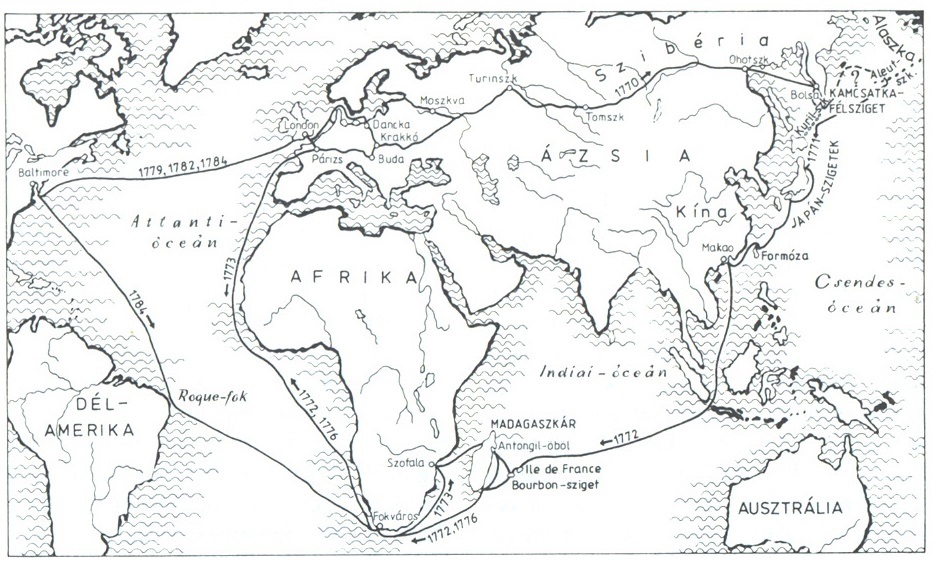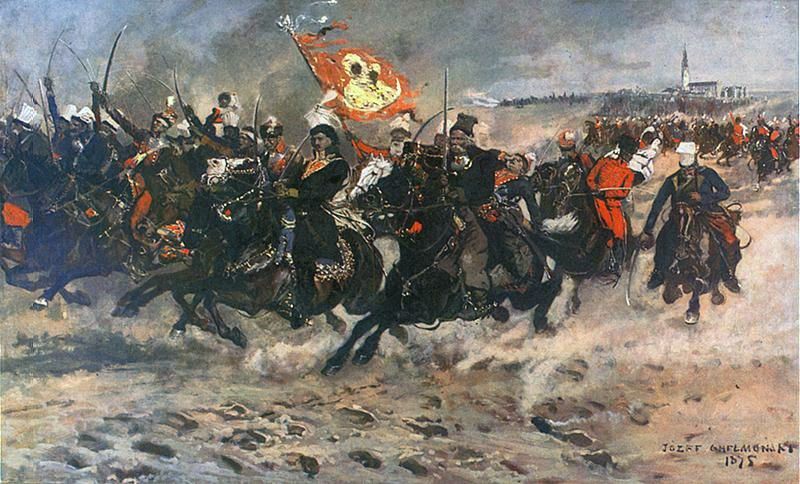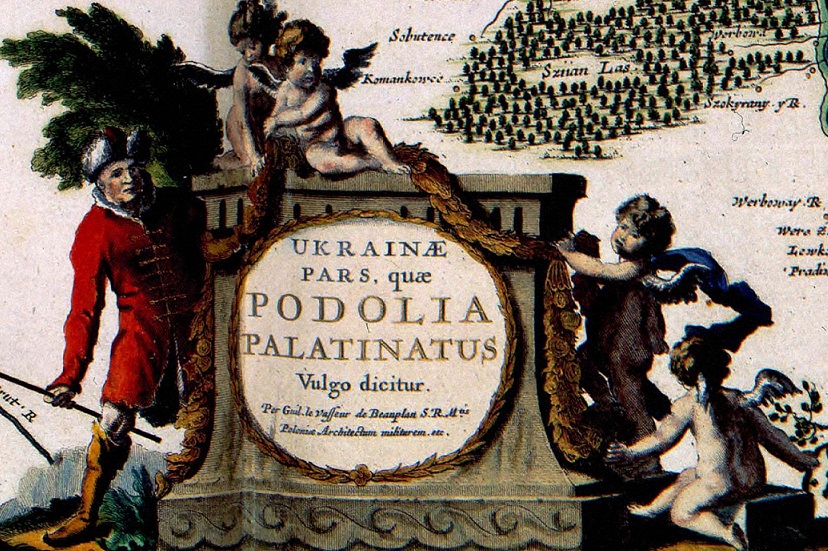|
Beniowski
''Beniowski'' is a poem written and composed by one of Poland's "Three National Bards", Juliusz Słowacki. The first section was published in 1841, however the remaining parts were written by Antoni Malecki after Słowacki's death in 1849. The content of the poem summarizes the events that occurred during the infamous Bar Confederation; the fight against the Russians and rebellious Ruthenian peasants, which took place in the Eastern borderlands (Polish: ''Kresy'') of the Polish-Lithuanian Commonwealth. It tells the story of Maurycy Beniowski, an impoverished nobleman and aristocrat in the region of Podolia Podolia or Podilia ( uk, Поділля, Podillia, ; russian: Подолье, Podolye; ro, Podolia; pl, Podole; german: Podolien; be, Падолле, Padollie; lt, Podolė), is a historic region in Eastern Europe, located in the west-central ..., and his love to a wealthy lady living in a nearby castle with her intolerant family. The poem is often described as d ... [...More Info...] [...Related Items...] OR: [Wikipedia] [Google] [Baidu] |
Maurice, Count De Benyovszky
Count Maurice Benyovszky de Benyó et Urbanó ( hu, Benyovszky Máté Móric Mihály Ferenc Szerafin Ágost; pl, Maurycy Beniowski; sk, Móric Beňovský; 20 September 1746 – 24 May 1786) was a renowned military officer, adventurer, and writer from the Kingdom of Hungary, who described himself as both a Hungarian and a Pole. He is considered a national hero in Hungary, Poland, and Slovakia. Benyovszky was born and raised in Verbó, Kingdom of Hungary (present-day Vrbové, Slovakia). In 1769, while fighting for the Polish armies under the Bar Confederation, he was captured by the Russians and exiled to Kamchatka. He subsequently escaped and returned to Europe via Macau and Mauritius, arriving in France. In 1773, Benyovszky reached agreement with the French government to establish a trading post on Madagascar. Facing significant problems with the climate, the terrain, and the native Sakalava people, he abandoned the trading post in 1776. Benyovszky then returned to Europe, joi ... [...More Info...] [...Related Items...] OR: [Wikipedia] [Google] [Baidu] |
Juliusz Słowacki
Juliusz Słowacki (; french: Jules Slowacki; 4 September 1809 – 3 April 1849) was a Polish Romantic poet. He is considered one of the "Three Bards" of Polish literature — a major figure in the Polish Romantic period, and the father of modern Polish drama. His works often feature elements of Slavic pagan traditions, Polish history, mysticism and orientalism. His style includes the employment of neologisms and irony. His primary genre was the drama, but he also wrote lyric poetry. His most popular works include the dramas ''Kordian'' and '' Balladyna'' and the poems '' Beniowski'', ''Testament mój'' and '' Anhelli''. Słowacki spent his youth in the " Stolen Lands", in Kremenets ( pl, Krzemieniec; now in Ukraine) and Vilnius ( pl, Wilno, in Lithuania). He briefly worked for the government of the Kingdom of Poland. During the November 1830 Uprising, he was a courier for the Polish revolutionary government. When the uprising ended in defeat, he found himself abroad and ther ... [...More Info...] [...Related Items...] OR: [Wikipedia] [Google] [Baidu] |
Poland
Poland, officially the Republic of Poland, is a country in Central Europe. It is divided into 16 administrative provinces called voivodeships, covering an area of . Poland has a population of over 38 million and is the fifth-most populous member state of the European Union. Warsaw is the nation's capital and largest metropolis. Other major cities include Kraków, Wrocław, Łódź, Poznań, Gdańsk, and Szczecin. Poland has a temperate transitional climate and its territory traverses the Central European Plain, extending from Baltic Sea in the north to Sudeten and Carpathian Mountains in the south. The longest Polish river is the Vistula, and Poland's highest point is Mount Rysy, situated in the Tatra mountain range of the Carpathians. The country is bordered by Lithuania and Russia to the northeast, Belarus and Ukraine to the east, Slovakia and the Czech Republic to the south, and Germany to the west. It also shares maritime boundaries with Denmark and Sweden. ... [...More Info...] [...Related Items...] OR: [Wikipedia] [Google] [Baidu] |
Three Bards
The Three Bards (, ) are the national poets of Polish Romanticism, Polish Romantic literature. They lived and worked in exile during the partitions of Poland which ended the existence of the Polish sovereign state. Their Tragedy, tragic Poetry, poetical Play (theatre), plays and epic poetry written in the aftermath of the November Uprising, 1830 Uprising against the Russia, Russian rulership, revolved around the Polish struggle for independence from foreign powers. Meaning ''Wieszcz'' means ''prophet'' or ''Fortune-telling, soothsayer'' in the Polish language. Therefore, the Three Bards were thought to not only voice Polish national sentiments but also to foresee the nation's future. The term Three Bards is almost exclusively used to denote Adam Mickiewicz (1798–1855), Juliusz Słowacki (1809–1849) and Zygmunt Krasiński (1812–1859). Of the three, Krasiński is considered the least influential. In a rough classification of the members of this triad, Mickiewicz, the maste ... [...More Info...] [...Related Items...] OR: [Wikipedia] [Google] [Baidu] |
Bar Confederation
The Bar Confederation ( pl, Konfederacja barska; 1768–1772) was an association of Polish nobles (szlachta) formed at the fortress of Bar in Podolia (now part of Ukraine) in 1768 to defend the internal and external independence of the Polish–Lithuanian Commonwealth against Russian influence and against King Stanislaus II Augustus with Polish reformers, who were attempting to limit the power of the Commonwealth's wealthy magnates. The founders of the Bar Confederation included the magnates Adam Stanisław Krasiński, Bishop of Kamieniec, Karol Stanisław Radziwiłł, Casimir Pulaski, his father and brothers and Michał Krasiński. Its creation led to a civil war and contributed to the First Partition of the Polish–Lithuanian Commonwealth. Maurice Benyovszky was the best known European Bar Confederation volunteer, supported by Roman Catholic France and Austria. Some historians consider the Bar Confederation the first Polish uprising. Background Abroad At the end ... [...More Info...] [...Related Items...] OR: [Wikipedia] [Google] [Baidu] |
Russian Empire
The Russian Empire was an empire and the final period of the Russian monarchy from 1721 to 1917, ruling across large parts of Eurasia. It succeeded the Tsardom of Russia following the Treaty of Nystad, which ended the Great Northern War. The rise of the Russian Empire coincided with the decline of neighbouring rival powers: the Swedish Empire, the Polish–Lithuanian Commonwealth, Qajar Iran, the Ottoman Empire, and Qing China. It also held colonies in North America between 1799 and 1867. Covering an area of approximately , it remains the third-largest empire in history, surpassed only by the British Empire and the Mongol Empire; it ruled over a population of 125.6 million people per the 1897 Russian census, which was the only census carried out during the entire imperial period. Owing to its geographic extent across three continents at its peak, it featured great ethnic, linguistic, religious, and economic diversity. From the 10th–17th centuries, the land ... [...More Info...] [...Related Items...] OR: [Wikipedia] [Google] [Baidu] |
Ruthenians
Ruthenian and Ruthene are exonyms of Latin origin, formerly used in Eastern and Central Europe as common ethnonyms for East Slavs, particularly during the late medieval and early modern periods. The Latin term Rutheni was used in medieval sources to describe all Eastern Slavs of the Grand Duchy of Lithuania, as an exonym for people of the former Kievan Rus', thus including ancestors of the modern Belarusians, Rusyns and Ukrainians. The use of ''Ruthenian'' and related exonyms continued through the early modern period, developing several distinctive meanings, both in terms of their regional scopes and additional religious connotations (such as affiliation with the Ruthenian Greek Catholic Church). In medieval sources, the Latin term ''Rutheni'' was commonly applied to East Slavs in general, thus encompassing all endonyms and their various forms (Ukrainian: ''русини'', Belarusian: ''русіны''). By opting for the use of exonymic terms, authors who wrote in Latin were ... [...More Info...] [...Related Items...] OR: [Wikipedia] [Google] [Baidu] |
Kresy
Eastern Borderlands ( pl, Kresy Wschodnie) or simply Borderlands ( pl, Kresy, ) was a term coined for the eastern part of the Second Polish Republic during the interwar period (1918–1939). Largely agricultural and extensively multi-ethnic, it amounted to nearly half of the territory of pre-war Poland. Historically situated in the eastern Polish–Lithuanian Commonwealth, following the 18th-century foreign partitions it was annexed by Russia and partly by the Habsburg monarchy ( Galicia), and ceded to Poland in 1921 after the Peace of Riga. As a result of the post-World War II border changes, none of the lands remain in Poland today. The Polish plural term ''Kresy'' corresponds to the Russian ''okrainy'' (), meaning "the border regions". It is also largely co-terminous with the northern areas of the "Pale of Settlement", a scheme devised by Catherine the Great to limit Jews from settling in the homogenously Christian Orthodox core of the Russian Empire, such as Moscow and Sa ... [...More Info...] [...Related Items...] OR: [Wikipedia] [Google] [Baidu] |
Polish–Lithuanian Commonwealth
The Polish–Lithuanian Commonwealth, formally known as the Kingdom of Poland and the Grand Duchy of Lithuania, and, after 1791, as the Commonwealth of Poland, was a bi-confederal state, sometimes called a federation, of Crown of the Kingdom of Poland, Poland and Grand Duchy of Lithuania, Lithuania ruled by a common Monarchy, monarch in real union, who was both King of Poland and List of Lithuanian monarchs, Grand Duke of Lithuania. It was one of the largest and most populous countries of 16th- to 17th-century Europe. At its largest territorial extent, in the early 17th century, the Commonwealth covered almost and as of 1618 sustained a multi-ethnic population of almost 12 million. Polish language, Polish and Latin were the two co-official languages. The Commonwealth was established by the Union of Lublin in July 1569, but the Crown of the Kingdom of Poland and the Grand Duchy of Lithuania had been in a ''de facto'' personal union since 1386 with the marriage of the Polish ... [...More Info...] [...Related Items...] OR: [Wikipedia] [Google] [Baidu] |
Szlachta
The ''szlachta'' (Polish: endonym, Lithuanian: šlėkta) were the noble estate of the realm in the Kingdom of Poland, the Grand Duchy of Lithuania, and the Polish–Lithuanian Commonwealth who, as a class, had the dominating position in the state, exercising extensive political rights and power. Szlachta as a class differed significantly from the feudal nobility of Western Europe. The estate was officially abolished in 1921 by the March Constitution."Szlachta. Szlachta w Polsce" ''Encyklopedia PWN'' The origins of the ''szlachta'' are obscure and the subject of several theories. Traditionally, its members owned land (allods), [...More Info...] [...Related Items...] OR: [Wikipedia] [Google] [Baidu] |
Aristocracy
Aristocracy (, ) is a form of government that places strength in the hands of a small, privileged ruling class, the aristocracy (class), aristocrats. The term derives from the el, αριστοκρατία (), meaning 'rule of the best'. At the time of the word's origins in ancient Greece, the Greeks conceived it as rule by the best-qualified citizens—and often contrasted it favorably with monarchy, rule by an individual. The term was first used by such ancient Greeks as Aristotle and Plato, who used it to describe a system where only the best of the citizens, chosen through a careful process of selection, would become rulers, and hereditary rule would actually have been forbidden, unless the rulers' children performed best and were better endowed with the attributes that make a person fit to rule compared with every other citizen in the polity. Hereditary rule in this understanding is more related to oligarchy, a corrupted form of aristocracy where there is rule by a few, bu ... [...More Info...] [...Related Items...] OR: [Wikipedia] [Google] [Baidu] |
Podolia
Podolia or Podilia ( uk, Поділля, Podillia, ; russian: Подолье, Podolye; ro, Podolia; pl, Podole; german: Podolien; be, Падолле, Padollie; lt, Podolė), is a historic region in Eastern Europe, located in the west-central and south-western parts of Ukraine and in northeastern Moldova (i.e. northern Transnistria). The name derives from Old Slavic ''po'', meaning "by/next to/along" and ''dol'', "valley" (see dale). Geography The area is part of the vast East European Plain, confined by the Dniester River and the Carpathian arc in the southwest. It comprises an area of about , extending for from northwest to southeast on the left bank of the Dniester. In the same direction run two ranges of relatively low hills separated by the Southern Bug, ramifications of the Avratynsk heights. The Podolian Upland, an elongated, up to high plateau stretches from the Western and Southern Bug rivers to the Dniester, and includes hill countries and mountainous regions ... [...More Info...] [...Related Items...] OR: [Wikipedia] [Google] [Baidu] |


.jpg)



